|
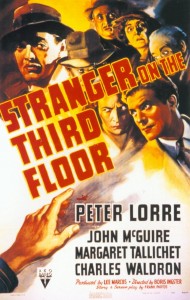
Synopsis:
When a reporter (John McGuire) testifies against a man (Elisha Cook, Jr.) seen leaving a diner after its owner (Charles Judels) is killed, McGuire’s girlfriend (Margaret Tallichet) is distressed that his testimony may be responsible for sending an innocent man to jail. Soon McGuire realizes a mysterious scarf-wearing man (Peter Lorre) likely killed both the diner owner and McGuire’s annoying neighbor (Charles Halton) — but as someone present at both crime scenes, will the murders be tagged on McGuire instead?
|
|
Genres, Themes, Actors, and Directors:
- Elisha Cook, Jr. Films
- Falsely Accused
- Journalists
- Living Nightmare
- Morality Polics
- Peter Lorre Films
Review:
This obscure B-level horror-drama by unknown Latvian director Boris Ingster presents a Kafka-esque living nightmare of sexual repression, moral condemnation, shadowy strangers, and rampant corruption, running in some truly surreal directions while building a storyline predicated on noir-esque voiceovers and explanatory flashbacks-within-flashbacks. McGuire is an “everyman” who simply wants to marry his girl, but needs money to get out of his claustrophic boarding house, where his shrewish landlady (Ethel Griffies) and self-righteous neighbor (Charles Halton) won’t give him a break — even the sound of his typing annoys them. His conscience is at first fine with the fact that his testimony against a cabbie (Cook, Jr.) is pivotal in a laughably inept court case while also conveniently providing enough sensational news to afford him financial freedom as a reporter; but his girlfriend has a very different take on the situation, and soon he’s plagued with guilt and insecurity. Lorre’s rat-like character (check out those teeth) lurks in the corners, and — naturally — turns out to play a pivotal role in the proceedings, though not without plenty of suspense in the meantime. (Does McGuire’s righteous anger at his neighbors represent thinly-veiled hostility that may be “outing” itself unconsciously?) The film’s memorable highlight is McGuire’s Expressionist nightmare, with all elements of his recent existence showing up in stylized fashion to literally haunt his dreams and spur him to “do the right thing”.
Redeeming Qualities and Moments:
- Nick Musuraca’s cinematography
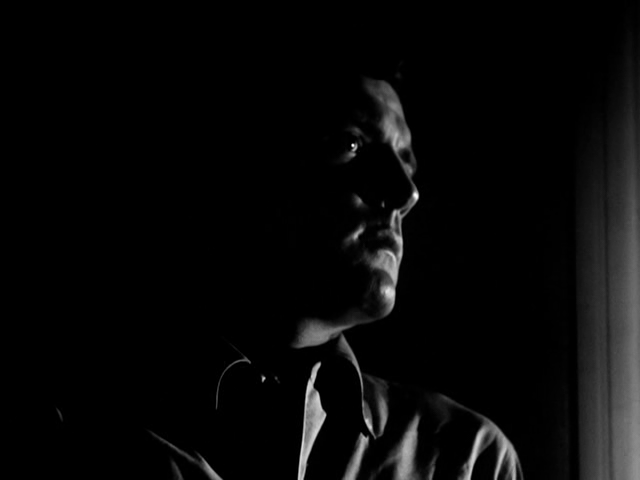
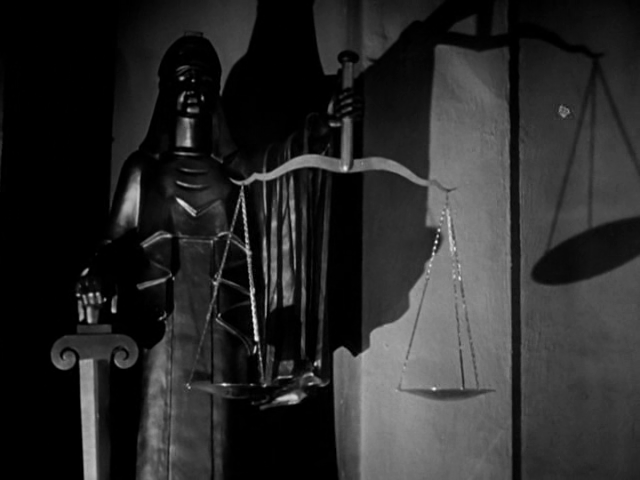
- Creative direction
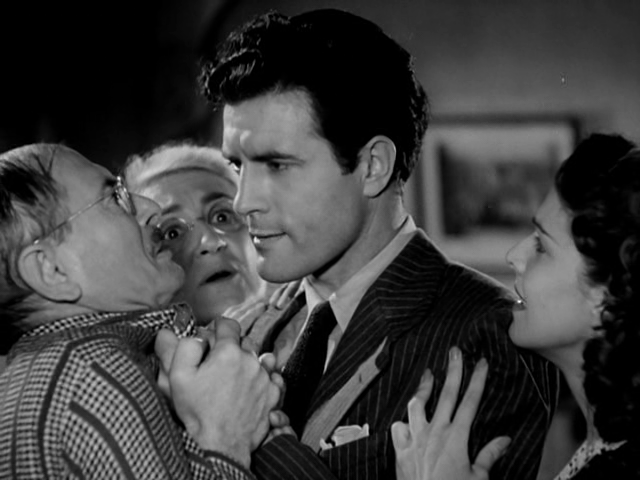
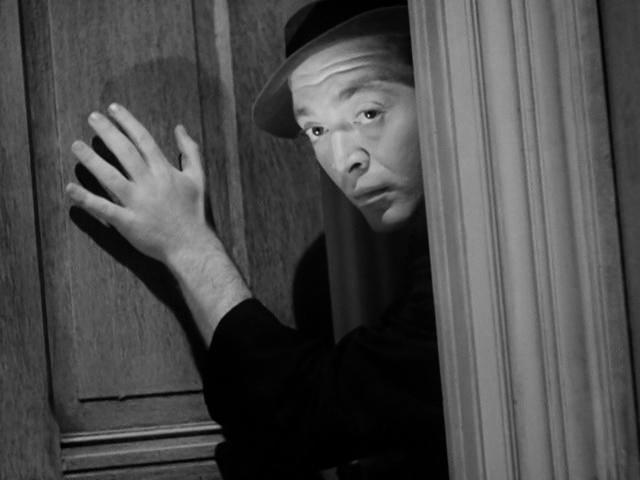
- The truly surreal Expressionist dream sequence
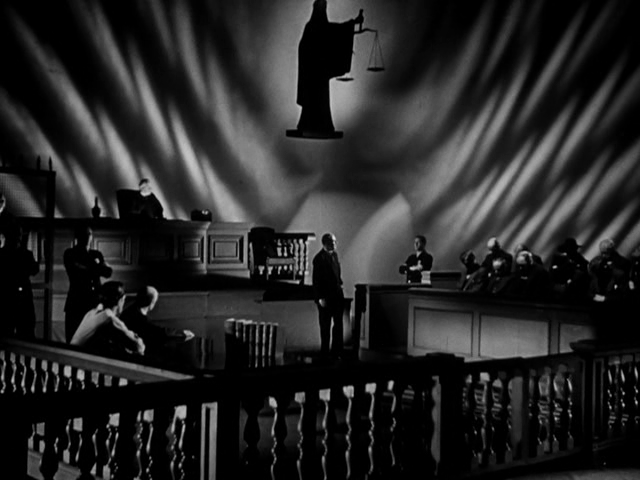
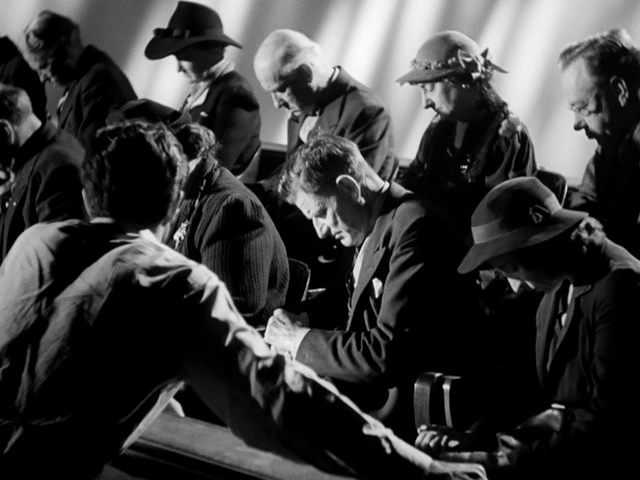
Must See?
Yes, for its visual ingenuity and narrative creativity. Listed as a Sleeper in the back of Peary’s book.
Categories
Links:
|
One thought on “Stranger on the Third Floor (1940)”
Must-see, esp. for its ingenuity. This is, indeed, a very clever, somewhat unsung little gem (which I had only seen once before).
It has much to say about the justice system, truth in general, and the unfairness of fate (“Why did I have to look across the street?”)
It also has something to say about how people can possibly change towards us due to circumstances that can alter their feelings about us – circumstances that they have their own feelings about. We all carry our own ‘justice system’ around with us.
I admire the film’s economy – it doesn’t need to be longer than it is; it has a small but potent statement to make. And a very sharp, tight script.
Naturally the film’s highlight is the extended nightmare/paranoia sequence which fully exploits the story’s noir leanings. But that’s not to imply that the rest of the film is wanting. It has terrific pacing throughout, as it slowly moves into an area of dread that we somehow think we will never find relief from.
Other than Lorre (of course), Elisha Cook Jr. and Ethel Griffies (few may immediately recognize her as the woman who eventually and memorably plays Mrs. Bundy, the ornithologist, in ‘The Birds’), I don’t think I was familiar with anyone in the cast. (Perhaps they were RKO regulars?) But everyone does a fine job.
Ingster only made two other, even-lesser-known feature films before moving to television.
This would go well on a double-bill with Hitchcock’s ‘The Wrong Man’.